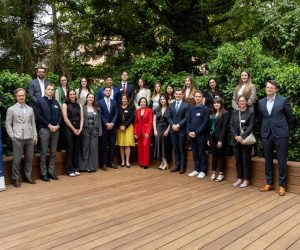On 21 May 2025, the Faculty of Law, Economics and Finance (FDEF) held its annual Moot Court Award Ceremony together with its longstanding partner Clifford Chance. This event celebrated the dedication and achievements of FDEF students participating in the Uni.lu Moot Court Programme.
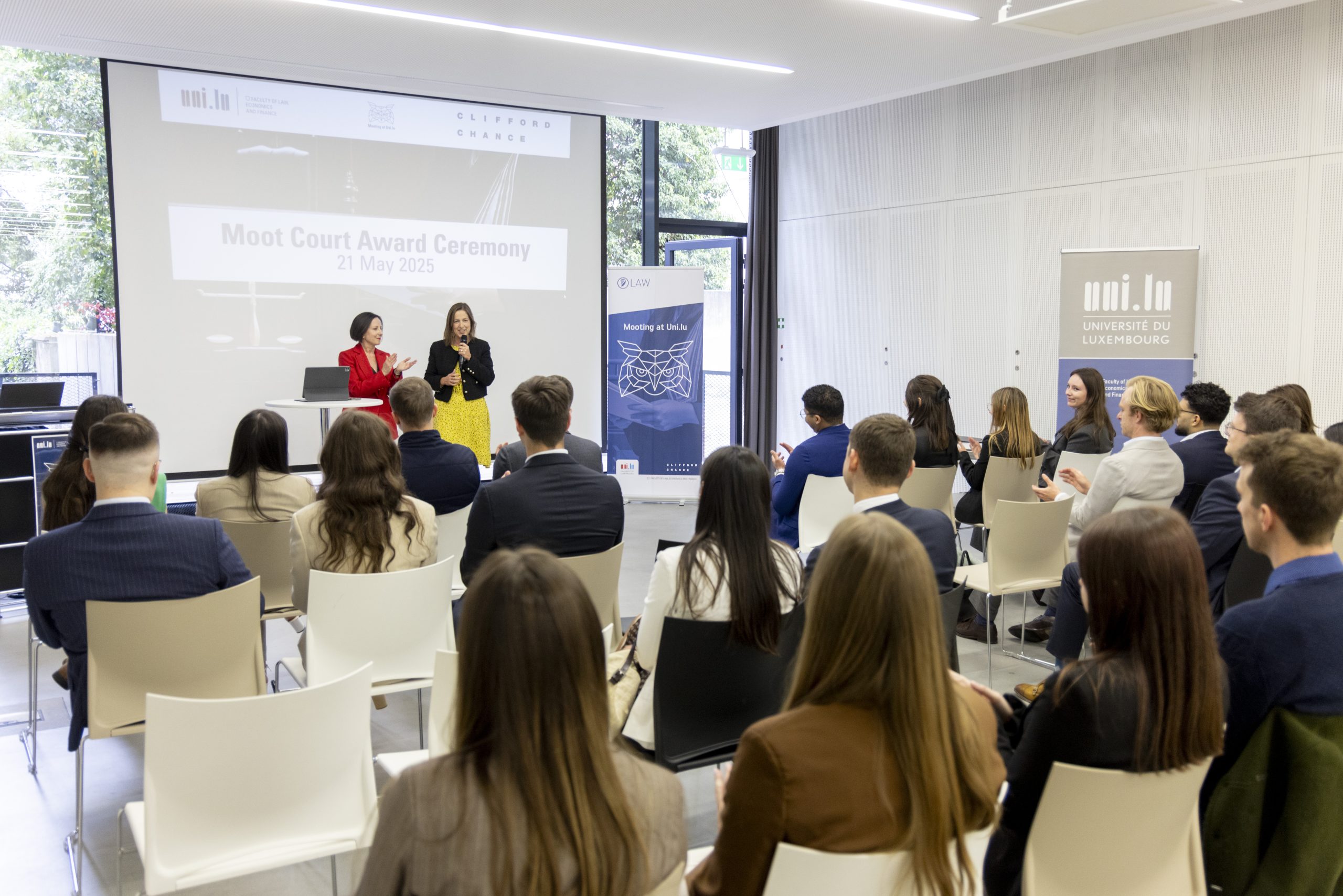
The ceremony was opened by Ms Katia Gauzès, Managing Partner at Clifford Chance, who warmly welcomed the members of the Moot Court Community. She extended her best wishes to the students for their future success and offered them some thoughtful career advice: “Follow your dreams. Be bold. Don’t hesitate to dare—because that’s what truly makes a difference. Stay curious, and seize the opportunities when they arise.” She thanked all those who had contributed to this enriching learning experience: “It has been a pleasure working with Susana and the Moot Court teams. Witnessing such brilliant students go the extra mile and challenge themselves is truly inspiring,” she said.
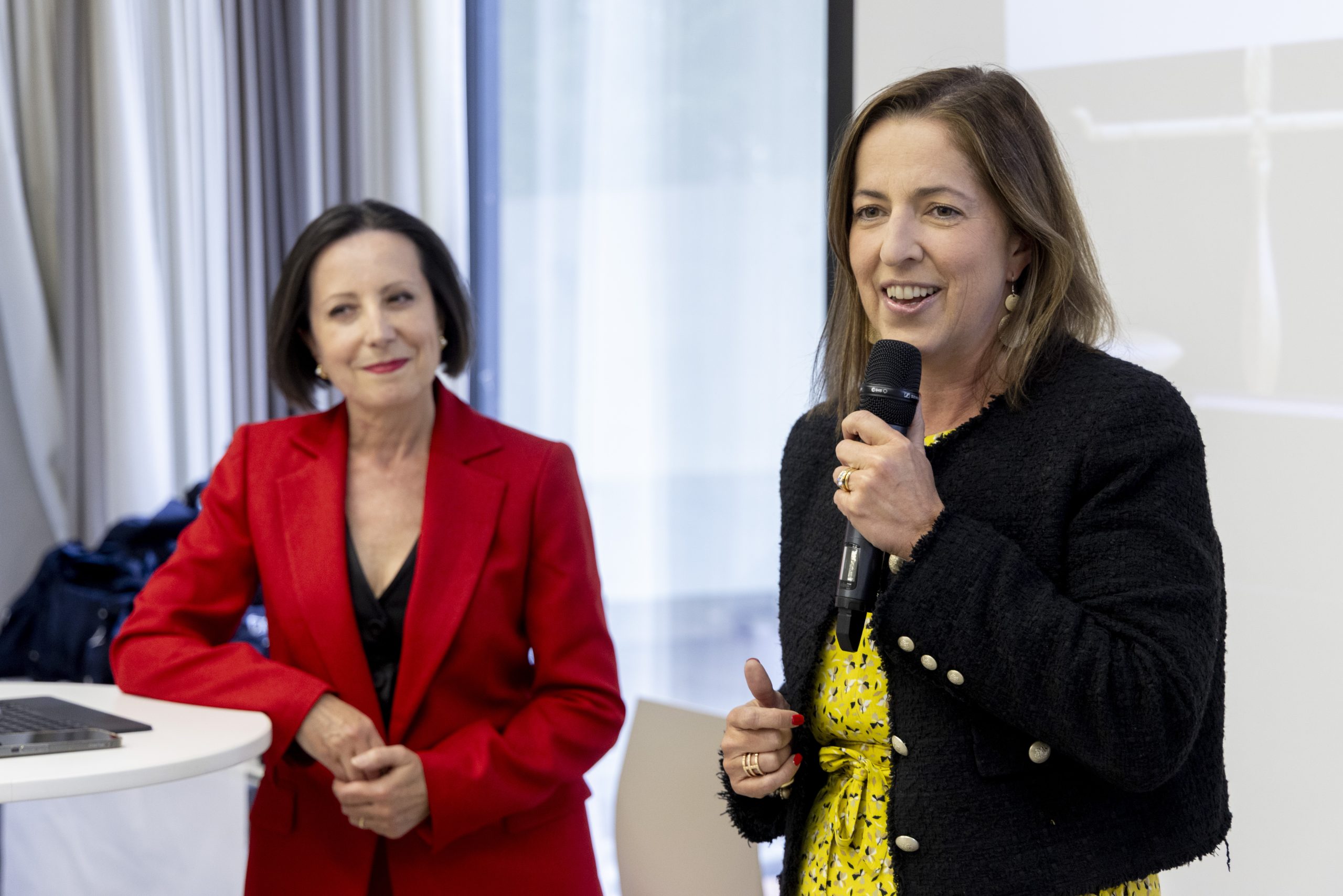
This was followed by a compelling speech from Dr Susana Muñoz, Moot Court Coordinator at the University of Luxembourg, who congratulated the teams on their outstanding performances throughout the 2024–2025 academic year. Reflecting on the journey the students had undertaken, she remarked: “Over these past months, you have taken flight through the skies of legal argument, teamwork, strategy, and discovery.” She highlighted how the Moot Court Programme invites students to board “a unique aircraft—not one with comfortable seats, but with a crew of passionate peers, tireless coaches, and, I daresay, more than a few rising stars of the legal profession.”
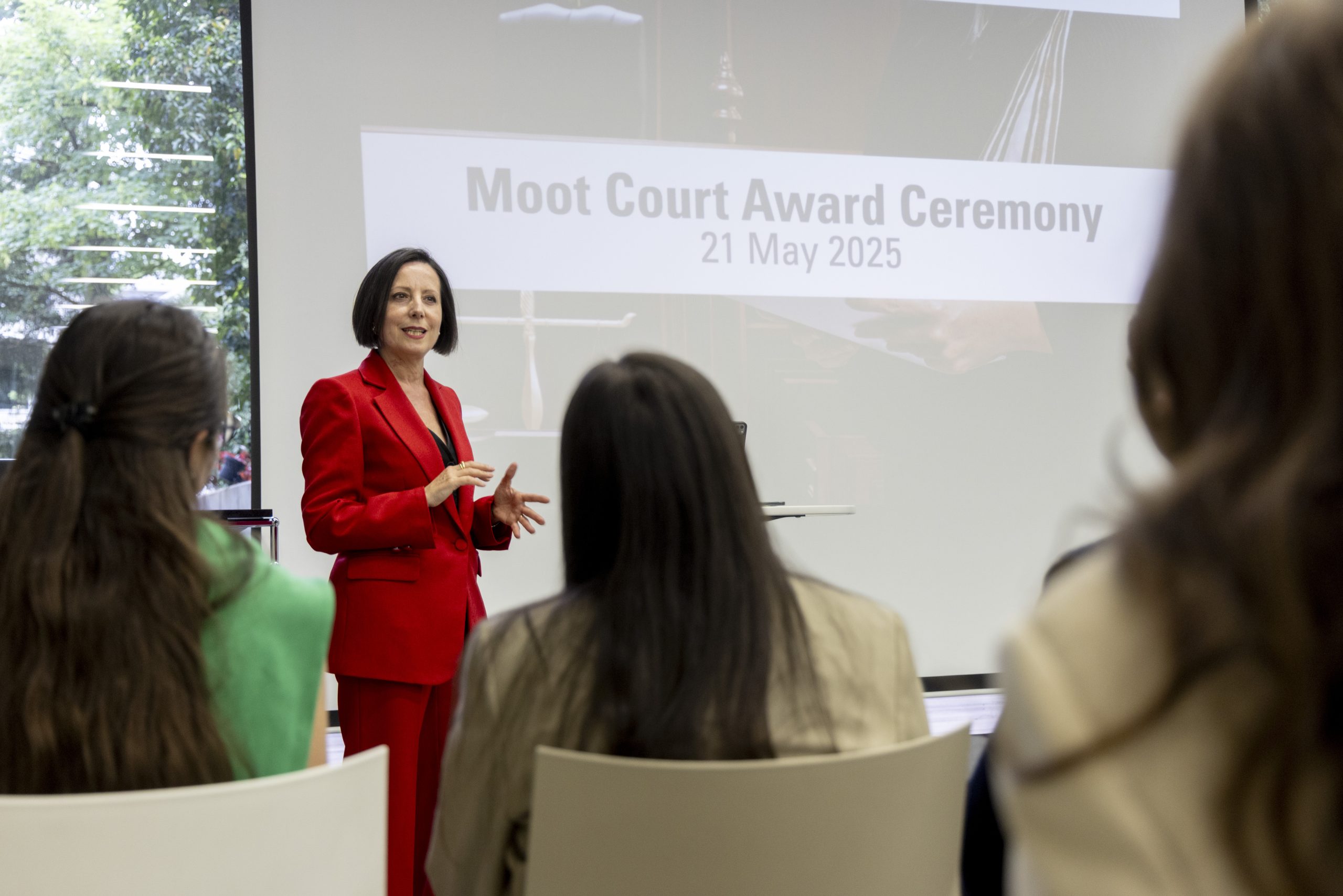
Meet the Mooting teams
The 2024–2025 Moot Court Programme brought together 21 students from 6 Master programmes, 8 moot coaches, 6 academic supervisors, 15 coaches from Clifford Chance, and numerous professors, postdoctoral and doctoral researchers, as well as external experts who offered invaluable support to the teams.
The ceremony recognised the outstanding achievements of six teams across various European and international Moot Court competitions:
European Law Moot Court Competition (ELMC)
After a challenging written phase, the team—comprising students Héloïse Boisguérin, Ségolène Brigode, Carolina Curioso, and Anass Jandoubi, and coached by Doctoral Researcher Giulia Areddu—qualified for the Helsinki Regional Final, where only 12 teams out of 80 were selected to compete. The team navigated the complex issues raised in the ELMC case, which concerned judicial cooperation in civil and commercial matters, effective judicial protection, actions for damages under national law for infringements of the competition law provisions of the Member States and the EU, and unfair business-to-consumer commercial practices within the internal market.
Reflecting on their performance, Dr Muñoz praised the team’s dedication, creative legal reasoning, and strategic thinking, describing them as “a bright light.” She commended the breadth of advocacy skills demonstrated by the mooters, the depth of their knowledge of unsettled issues in EU law, and what she described as “the right mix of balance and risk-taking.” In the role of Advocate General, Anass Jandoubi advanced to the Semi-Finals, thanks to his distinctive and persuasive pleadings. Proud of the team’s achievements, she called the students “truly winners with merits.”
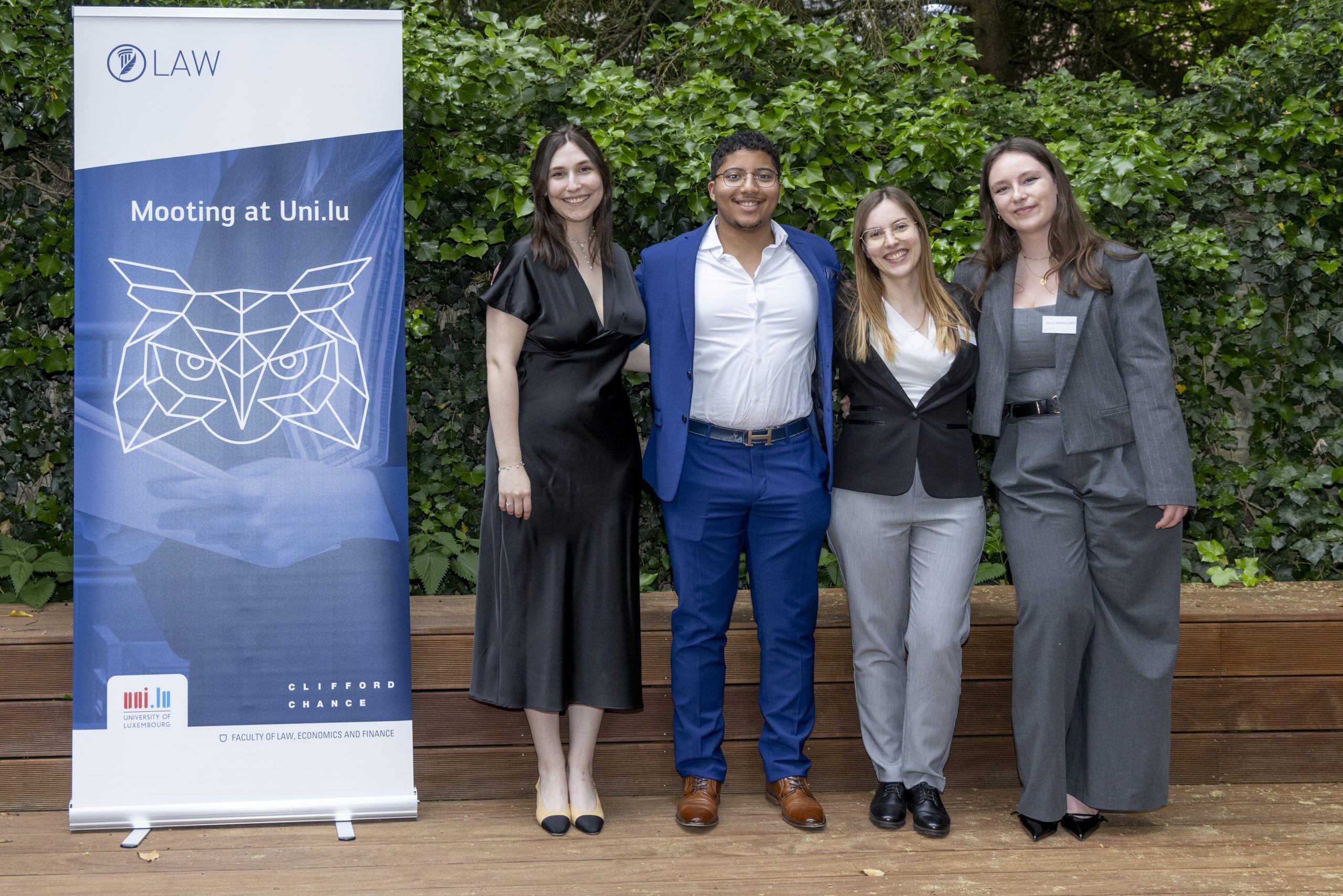
Philip C. Jessup International Law Moot Court Competition (Jessup)
The team—consisting of students Thomas Brunet, Carla Invernizzi, Qiuyi Liang, and Jakob Piep, coached by Postdoctoral Researchers Harrison Mbori and Randi Ayman—competed in “the Everest of public international law mooting”, where 806 teams from more than 100 countries faced off. The Jessup Problem addressed issues concerning the rights and obligations of other members of the international community when two persons claim to be the legitimate president of a state; invocation of immunity for government officials accused of grave violations of human rights; the legal consequences of receding coastlines for the maritime zones of coastal states; and the interpretation of the compromissory clause in a treaty creating a regional organisation.
Following rigorous preparation, the Jessup team successfully participated in the European Rounds in Madrid and in the International Rounds in Washington, DC. The team stood out for their commitment, perseverance, strong advocacy skills and leadership, as well as the diversity of their backgrounds and the positive team dynamics. Dr Muñoz commended the team, who “represented the University abroad with pride, along with the colours of the country.” The students also had the opportunity to attend a private meeting at the Embassy of Luxembourg in the United States.
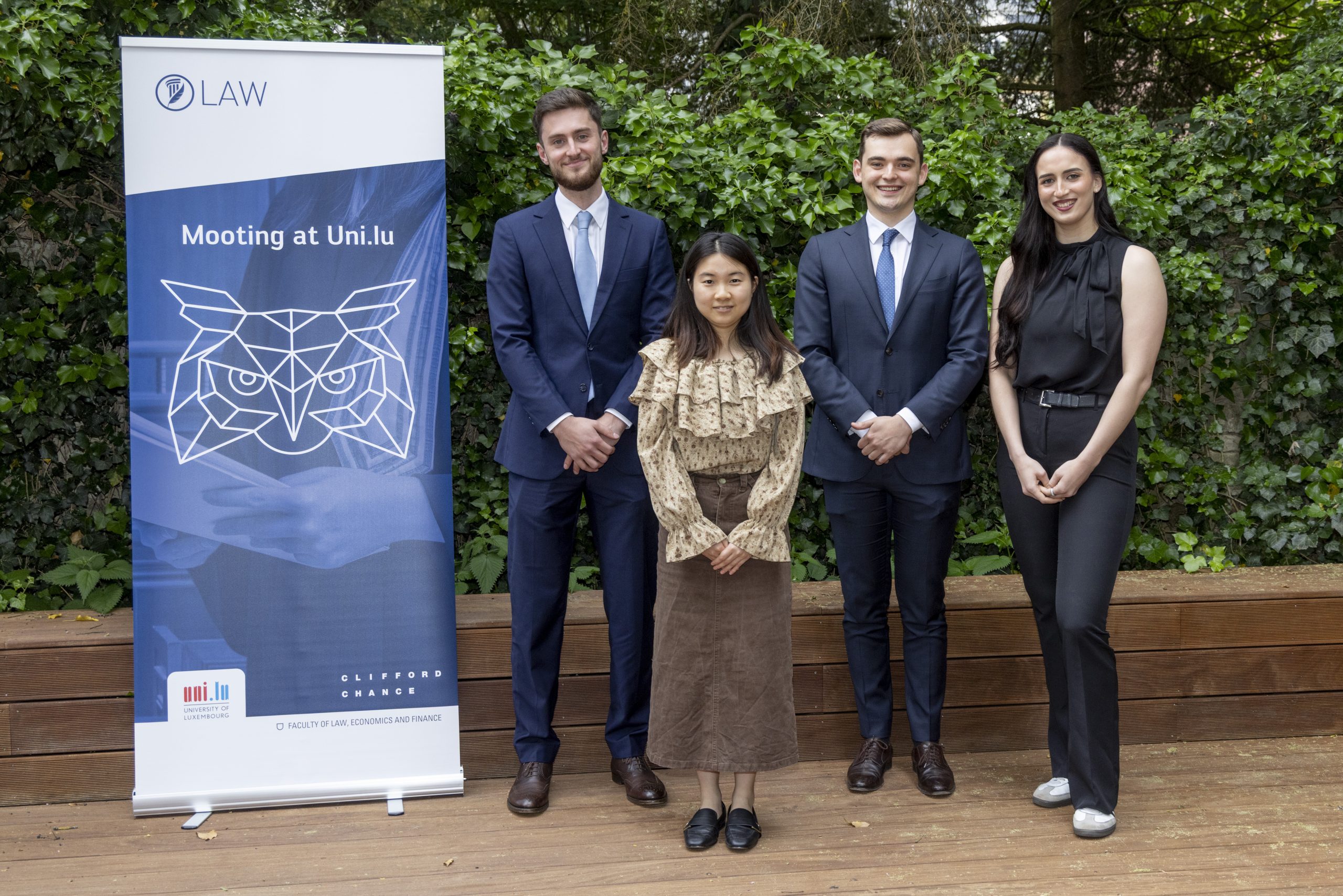
International and European Tax Moot Court Competition (Tax MC)
Coached by Doctoral Researcher Giovanni Vivona, students Eugénie Berthout, Chamir Mané Tavares, Yashna Rengha and Ioan Claudiu Trailescu successfully dealt with challenging tax law scenarios, qualifying for the oral phase of the Final Rounds. The Tax MC Utech cases addressed key legal issues in the taxation of multinational companies, including transfer pricing, digital services taxation, and the allocation of taxing rights in cross-border e-commerce transactions. They also explored disputes over the interpretation of tax treaties and the application of international tax rules to modern digital business models. Notably, the team’s memoranda received very positive feedback, with Dr Muñoz highlighting their rigorous approach to tax law and teamwork that provided an excellent opportunity to strengthen both their professional awareness and practical capabilities.
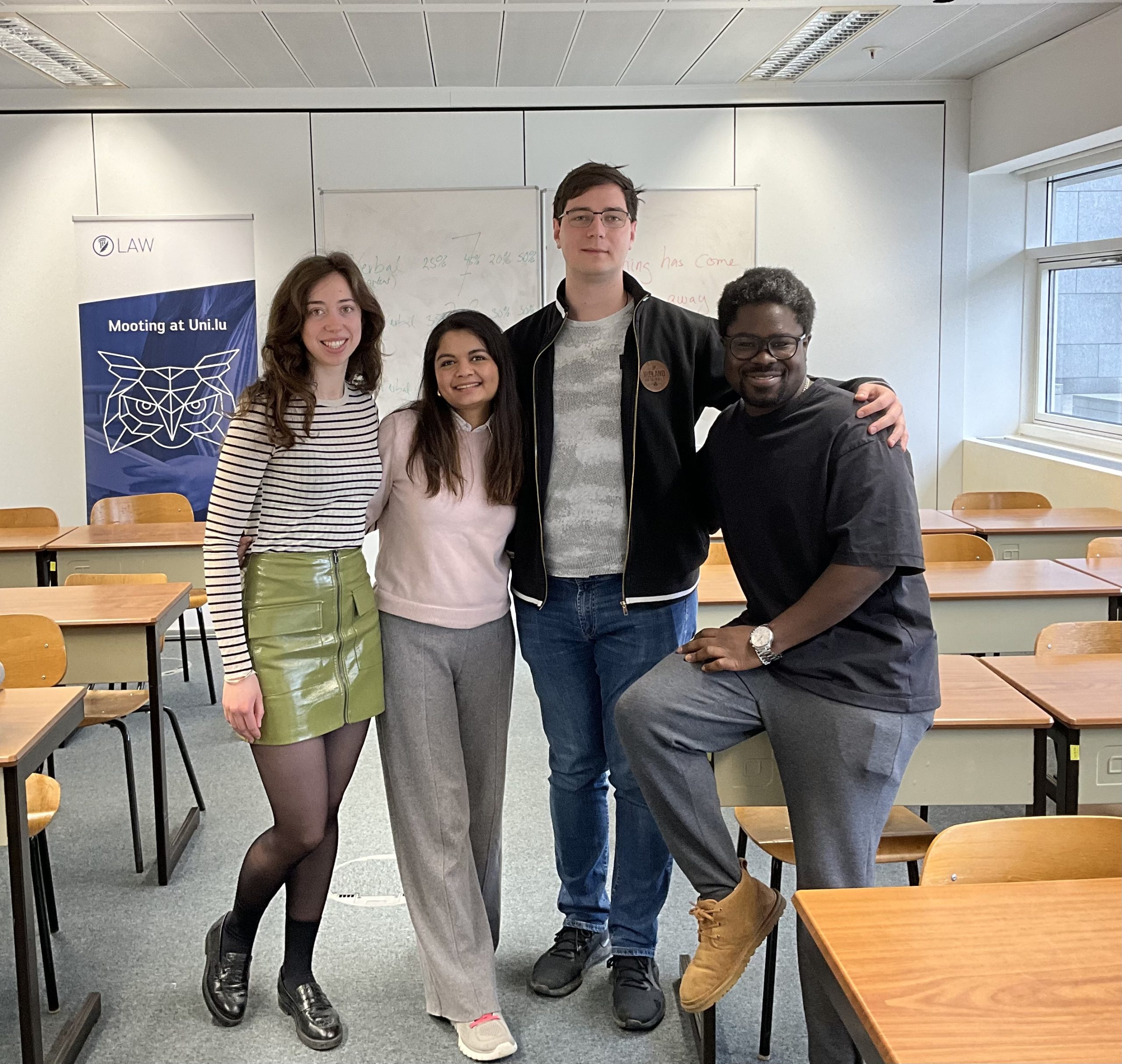
Monroe E. Price Media Law Moot Court Competition (Price MC)
The team—consisting of students Ulisse Bassi, Ana Valentina García Zambrano, and Joséphine Leclercq, coached by Postdoctoral Researcher Sandra Schmitz and Doctoral Researcher Donatella Casaburo—reached unprecedented heights in the Price MC at Uni.lu. Having navigated a demanding written phase, the team demonstrated exceptional resilience and skill in tackling complex issues in niche but increasingly relevant fields, such as the criminal liability of an influencer for AI-altered content shared on social media platforms in the context of political unrest, and the criminal liability of a social media platform for third party content including facial recognition technology.
The team was one of 13 to qualify for the Europe Rounds in Paris, and following their strong oral pleadings, they advanced—for the first time—to the International Rounds held at the University of Oxford. Dr Muñoz acknowledged that their success represented not only a competitive achievement but also a transformative learning experience, earning the team well-deserved recognition for their dedication and drive.
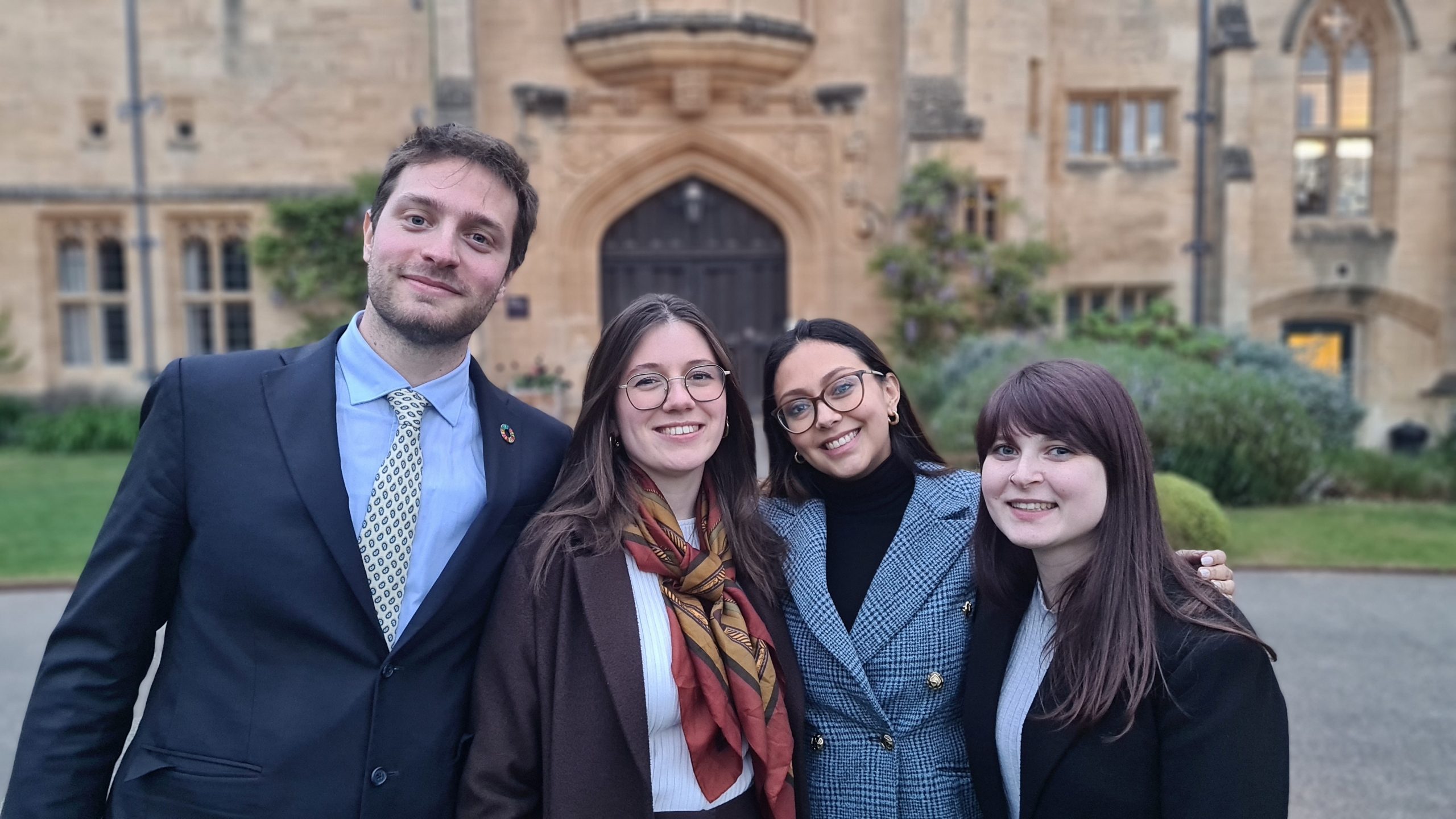
Manfred Lachs Space Law Moot Court Competition (MLMC)
This year marked a historic milestone: Students Lucia Maori and Noan Renault delivered a landmark performance, securing the University of Luxembourg’s first-ever victory in the European Rounds of the MLMC held at the European Space Agency in Paris. In addition, Lucia Maori was awarded Best Oralist of the Final. Dr Muñoz praised the team’s exceptional commitment and perseverance of this “great team of two”, coached by Postdoctoral Researcher Gabrielle Leterre with the special support of Theodora Liameti, former student and Jessuper at Uni.lu. Their contribution was “extraordinary in every sense,” said Dr Muñoz.
Confronted with a complex and technical topic—the applicability of the law of neutrality in the context of space technology support to belligerent States—the team demonstrated not only the ability to master a new legal domain within six months, but also to develop and deliver structured, persuasive arguments under pressure. Judges—leading academics, space agency legal counsels, and industry experts—were impressed by their ability to adapt their reasoning in real time and respond to challenging questions with depth, agility, and confident command of sources. After three intense days and six rounds, Lucia and Noan emerged as winners, proving not just that they performed well, but that they were the best team in Europe. For the first time, the University of Luxembourg will be represented at the World Finals in Sydney in September 2025. This remarkable achievement is a source of pride for the entire academic community.
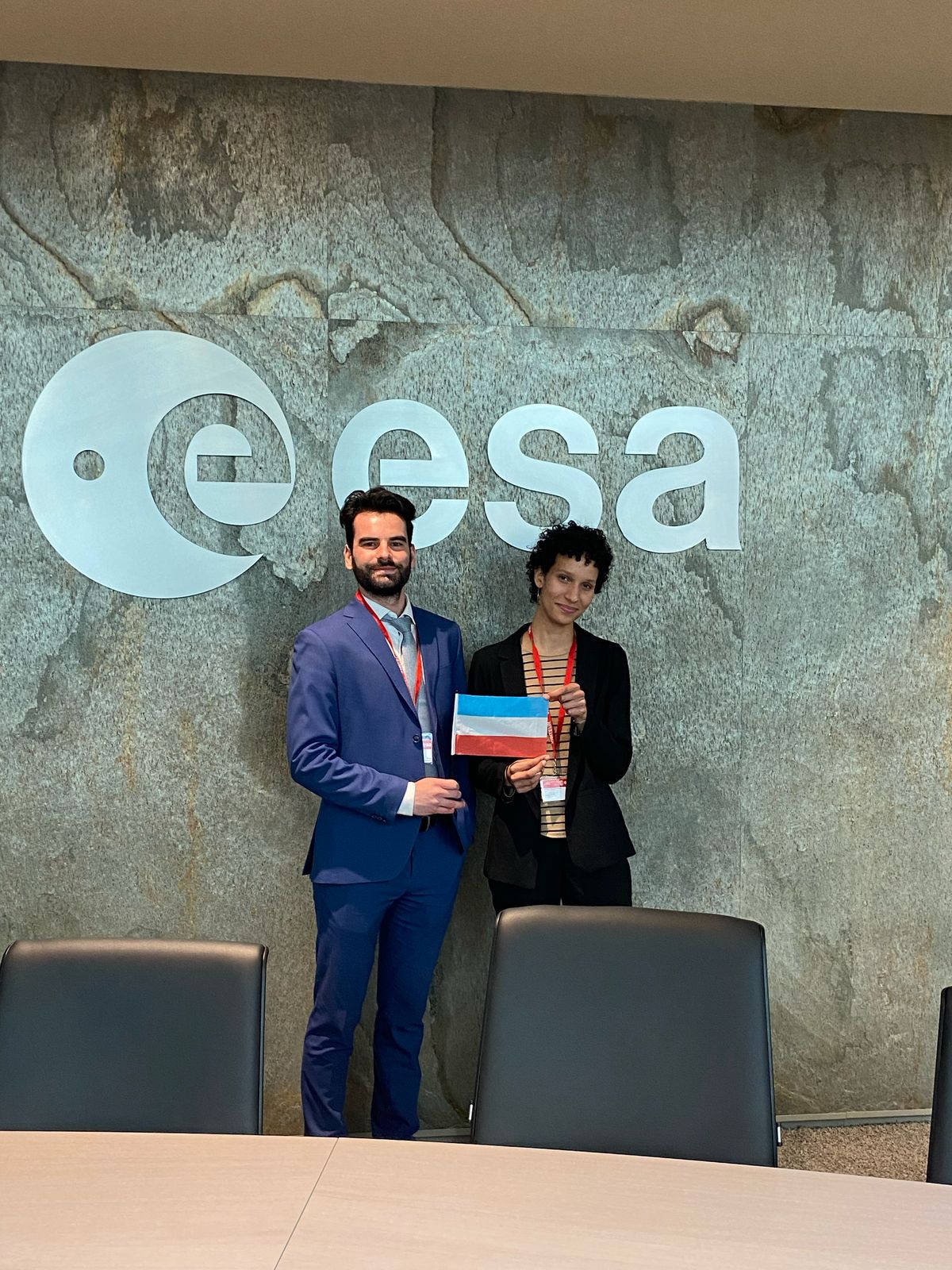
International Criminal Court Moot Court Competition (ICCMCC)
Students Chloé Antunes, Vadim Cebotari, and Mélissa Teixeira da Silva comprise the ICCMCC team, coached by Doctoral Researcher Bruno Biazatti. While their journey towards the Oral Rounds in The Hague continues through to June 2025, the team has already demonstrated strong teamwork and commitment to criminal law mooting. Since the beginning of the academic year, they have been engaging with timely and challenging legal issues on the criminal prosecution of the CEO of a major tech company for his alleged support to severe gender discrimination against women by a foreign state.
Dr Muñoz acknowledged their great team spirit, synergy, and focus, particularly noting the quality of the three memorials submitted. She also highlighted the team’s dedication to preparing the oral rounds, driven by a shared determination to represent the University of Luxembourg at the highest level. What the team has accomplished so far—in legal analysis, advocacy, and collaborative work—is sure to bear fruit in the next phase of the competition.
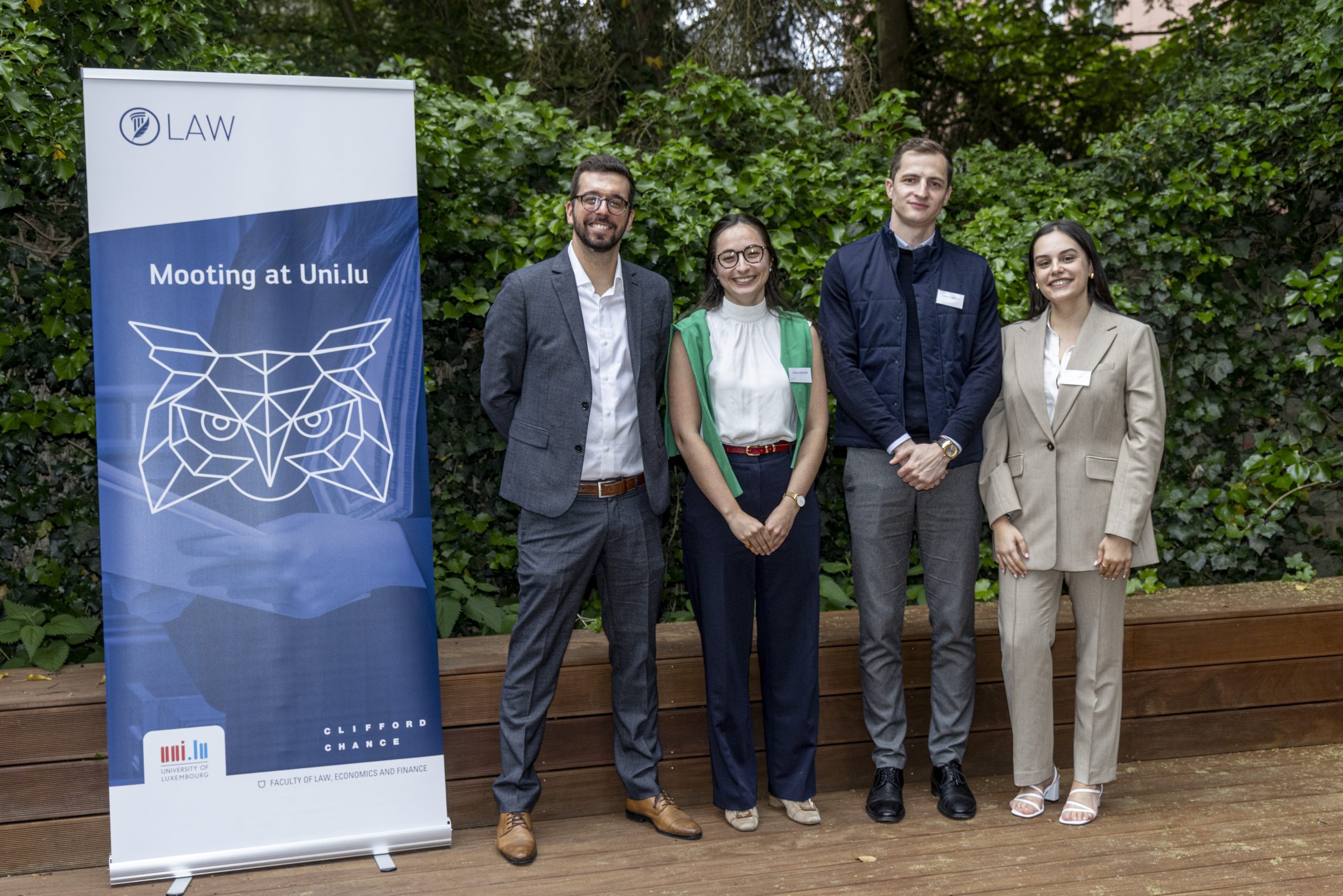
Recognising the students and the community
The ceremony continued with a speech by Professor Dirk Andreas Zetzsche, Head of the Department of Law at the FDEF, who congratulated the students and reflected on the intellectual and collegial spirit of mooting: “There is also brilliance on the other side.” Drawing on his own experience, he reminded participants that mooting is more than a competition—it is an art form, a craft that demands rigour, mutual respect, and camaraderie. He emphasised the value of forging friendships across teams, the honour of representing a distinguished group committed to academic excellence—reflecting the selective nature of the FDEF programmes in law and the international profile of the Law Department—and the role of mooters as ambassadors: of the University’s legal education, of the partner Clifford Chance and of Luxembourg. Professor Zetzsche acknowledged the long-standing cooperation with Clifford Chance, not only in providing practical support but in fostering a vibrant legal culture. Encouraging students to stay connected, he closed with a heartfelt message: “Stay part of our law community—your journey and contribution make us proud.”
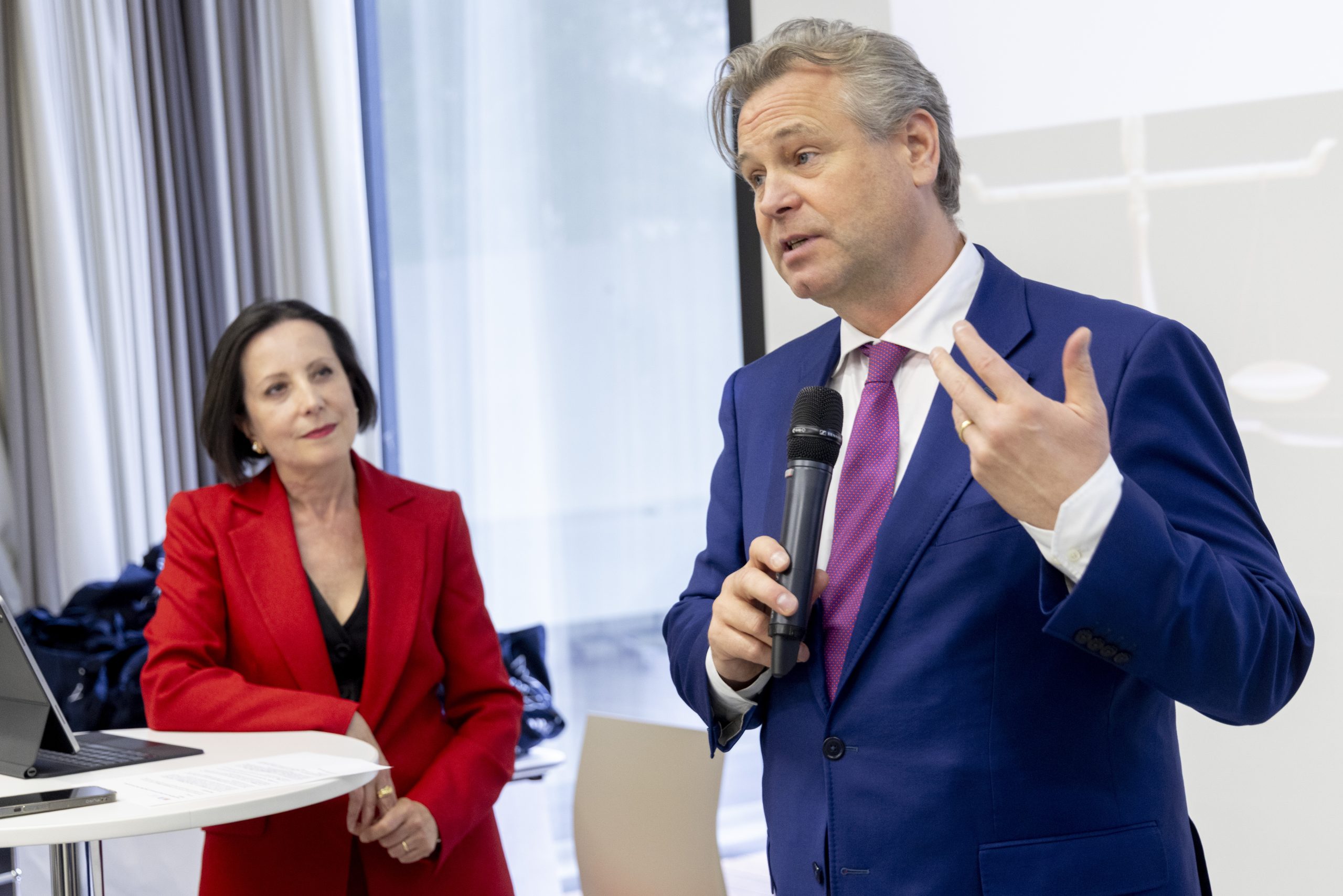
As a token of recognition, the students were awarded a Certificate of Appreciation from the Dean of the FDEF, Professor Katalin Ligeti.
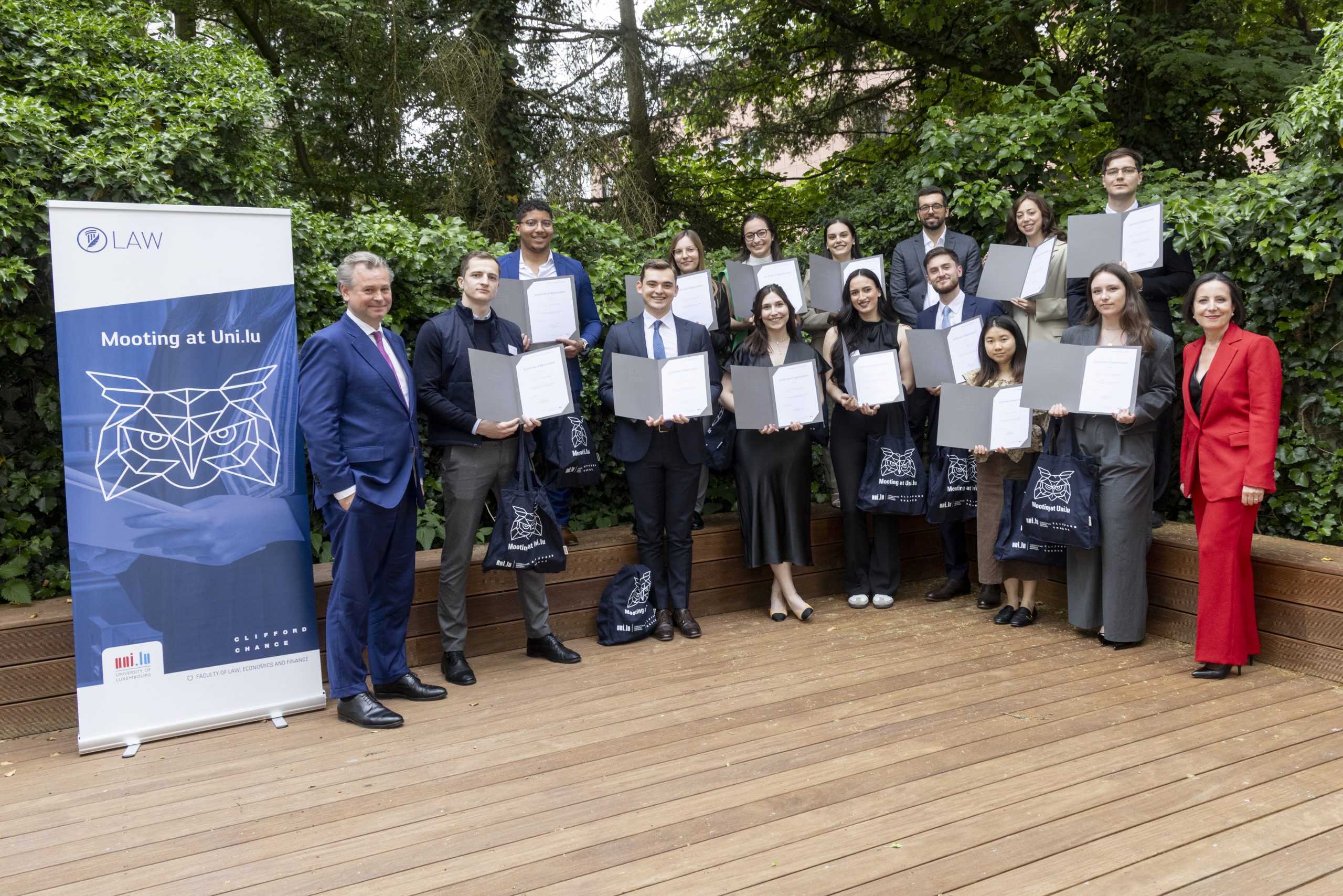
The Moot Court Coordinator paid also tribute to the coaching team for their unwavering dedication as “the wind beneath our students.” She warmly thanked the coaches—Giulia Areddu, Randi Ayman, Bruno Biazatti, Donatella Casaburo, Gabrielle Leterre, Harrison Mbori, Sandra Schmitz, Giovanni Vivona, and Theodora Liameti—for their time, insights, and energy in guiding the mooters. Dr Muñoz also expressed her appreciation to FDEF colleagues, professors and doctoral students for their support in shaping arguments and defining presentations—especially Catherine Warin and the overseeing professors Eleftheria Neframi, Werner Haslehner, Mark D. Cole, Mahulena Hoffmann, and Silvia Alegrezza.
Dr Muñoz conveyed her profound gratitude to Clifford Chance for over a decade of support in helping to shape future lawyers through a fruitful exchange between academia and legal practice. Special mention was made of the lawyers and mentors, whose guidance, expertise, and encouragement greatly enriched the students’ mooting experience: Tom Bleser, William Coppens, Katharina Creutz, Yannick Junior Gbalou, Romi Grumberg, Céline Haddad, Victor Hilbertz, Calysté Holt, Lea Nettemann, Victoria Perros, Myriam Pilz, Polina Rogozhina, Dominik Schlarb, Donald Sefer, and Aude Tusamba.
The ceremony concluded with a message of advice from Professor Inger Høedt-Rasmussen, who taught oral advocacy in mooting to the teams. She underscored the value of moot court as “a holistic approach to the legal career,” integrating rationality, emotion, and passion. She encouraged students to practise self-reflection in order to draw lessons from their mooting experiences for their future professional lives, and signed off with a meaningful reminder: “Have fun.”
In her closing remarks, Dr Muñoz reflected on the students’ journey: “Yours is a sky trail to remember. You embodied the core qualities and values of our Moot Court Programme. Watching you grow in skill and confidence—that is the true reward of my role.” She encouraged students to keep their spirits strong and their next destination in sight, wrapping up with warm congratulations to the entire Uni.lu Moot Court Community.
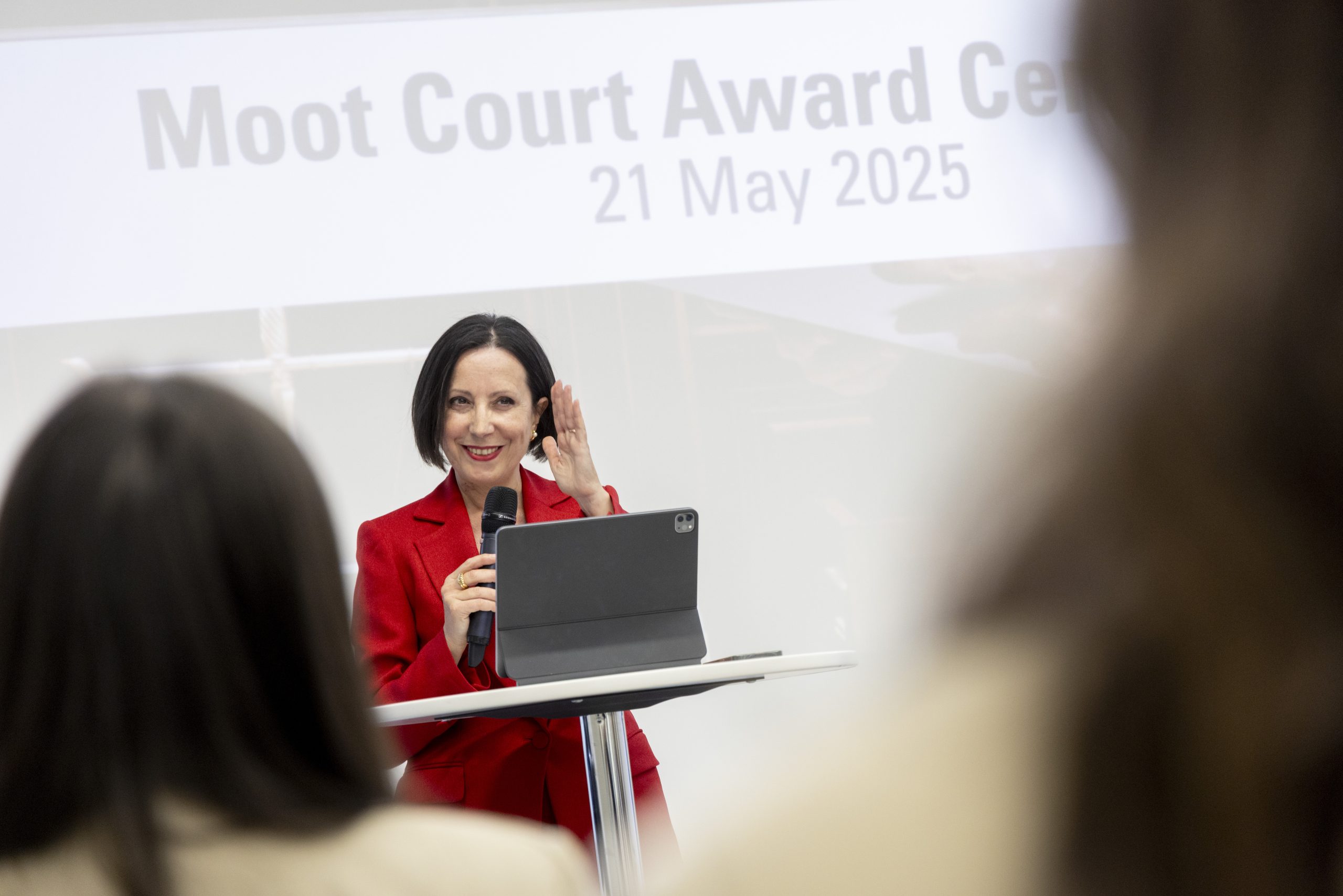
After the awards, the ceremony continued with the projection of a visual retrospective featuring selected highlights from the 2024–2025 Moot Court season, followed by a reception celebrating the achievements of all participants.
The Faculty extends its sincere gratitude to all who made the ceremony and the competitions possible, especially Clifford Chance for their continued support, and to all who contribute to the Moot Court Programme’s ongoing success. This collaboration enables FDEF students to take part in prestigious international competitions while gaining invaluable experience in advocacy, teamwork, and international networking.
